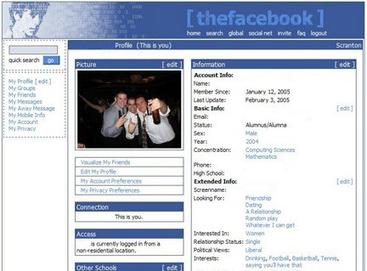 This is the first time that Facebook is expressed on the subject: in an article in The Atlantic magazine, Joe Sullivan, the head of security of Facebook, explains how his team tried to fight against "Anmar," the system Web censorship in place in Tunisia's Ben Ali government. Alerted to Christmas on growing complaints of sudden disappearances and Facebook pages, Joe Sullivan explains that Facebook has investigated for ten days, before concluding that the government had put in place a comprehensive flight of passwords of accounts Tunisian users social network.
This is the first time that Facebook is expressed on the subject: in an article in The Atlantic magazine, Joe Sullivan, the head of security of Facebook, explains how his team tried to fight against "Anmar," the system Web censorship in place in Tunisia's Ben Ali government. Alerted to Christmas on growing complaints of sudden disappearances and Facebook pages, Joe Sullivan explains that Facebook has investigated for ten days, before concluding that the government had put in place a comprehensive flight of passwords of accounts Tunisian users social network.The site was set up two "patches" to try to circumvent the problem: first, he would pass the information on this site https servers, an encrypted protocol which prevents the majority of technical espionage. On the other hand, he built a new system for verifying the identity of account holders, activated only during periods of attack.
"NOT A POLITICAL ISSUE" But if the theft of passwords is strongly accelerated from December, the practice was far from new. By July 2010, the activist Amamou Slim - now Minister of Sports and Youth after the flight of President Ben Ali - had detailed the procedure followed by the Tunisian authorities to steal passwords from opponents, Facebook, Yahoo or Gmail.
Access to the secure version of Facebook (https: / / facebook. Com) was also blocked intermittently before the protests began. For Facebook, the establishment of a workaround for monitoring web Tunisia remains an exceptional case. "From our point of view, it was a security issue and theft of password, and we must ensure that our accounts and passwords are protected," he explains.
It 's acting in a matter of safety, be answered 'white' or 'black', not a political issue. "



- Tunisian Government Allegedly Hacking Facebook, Gmail Accounts of Dissidents and Journalists (10/01/2011)
- Tunisian government harvesting usernames and passwords (04/01/2011)
- Societe Tunisienne de Banque (STB) Uses VASCO VACMAN Controller and DIGIPASS to Secure Its Enterprise Customers (22/11/2010)
- 6 Awesome Lesser Known Things To Do on Facebook (24/01/2011)
- Tunisia Puts Two Ben Ali Advisers Under House Arrest as Protests Continue - Bloomberg (23/01/2011)
No comments:
Post a Comment